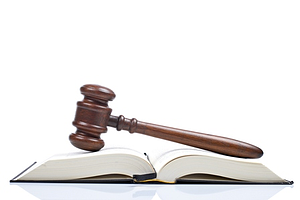 If you’re a new Board Member for your homeowners association, or you’re considering whether or not to become one, it’s important to understand how an HOA is governed, and who the Board is accountable to. A well-governed HOA will not only know what entity has the governing authority over another, but will also listen to feedback from the residents in the association when it comes to how the association is being run.
If you’re a new Board Member for your homeowners association, or you’re considering whether or not to become one, it’s important to understand how an HOA is governed, and who the Board is accountable to. A well-governed HOA will not only know what entity has the governing authority over another, but will also listen to feedback from the residents in the association when it comes to how the association is being run.
An HOA Board is held accountable by codes and laws. Homeowners associations are regulated by the California Corporation’s Code, as well as other California state laws and codes. Some of these codes include:
-
State of California Business and Professions Code
-
Federal Laws
Each of these codes has a different level of governing power. Federal law has precedent over state law, and state law ranks over a homeowners association’s Covenants, Conditions and Restrictions (CC&Rs), Bylaws, and Rules and Regulations.
There are two major distinctions between the CC&Rs and Bylaws in a homeowners association
-
The CC&Rs determine how the association is governed by the HOA Board.
This document details the duties and power of the Board. For example, generally the Board has the authority to make decisions about whether or not to increase HOA fees or hire a property management company. The CC&Rs also provide the proper protocol for potential issues like a fire or other natural disaster. The Bylaws basically just expand on the items mentioned in the CC&Rs. -
The CC&Rs are recorded with the County Recorder when a property is sold, while the Bylaws are not. The CC&Rs is the binding document recorded with the title for the home.
The Rules and Regulations in a homeowners association protect the interests of the homeowner
These are adopted by the HOA Board and generally fall into three categories:
-
Determining the appropriate use of the common areas and other facilities such as the pool, tennis courts or clubhouse.
-
Managing the behavior among association residents and guests, such as parking rules, home maintenance requirements, or sound ordinances.
-
Enforcing penalties when any of the rules or regulations are violated.
Since your homeowners association is where you live, you have a say in the way it’s governed. Whether you are considering becoming and HOA Board member, or are currently an active member that cares about your community, it’s important you understand how the governing works.
Topics: HOA Management, HOA Board, HOA Documents and Contracts




